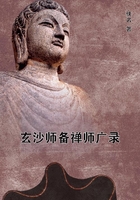Salmacius, the Latin name of Claude de Saumaise an eminent French scholar and linguist (1588-1653), whose Defence of Charles 1. provoked Milton's crushing reply, Defensio Pro populo Anglicano Sandys, Samuel, opposed Sir R. Walpole, on whose retirement he became Chancellor of the Exchequer, and afterwards a peer.
Sattara, a fortified town c. one hundred miles southeast from Bombay.
Saxe, the foremost French general in the War of the Austrian Succession (1696-1750.)
Scaligers;, Julius Caesar S., a learned Italian writer and classical scholar (1484-1558) and his son Joseph Justus S., who lived in France and was also an eminent scholar.
Schedules A and B. In the Reform Act Of 1832 Schedule A comprised those boroughs which were no longer to be represented, B those which were to send one member instead of two.
Scroggs, the infamous Chief-Justice of the King's Bench in the reign of Charles II., impeached in 680, and pensioned by Charles.
Secker, Archbishop of Canterbury from 1758 to 1768.
Seigneur Oreste and Madame Andromaque. See Racine's Andromaque.
Settle, Elkanah. See Flecknoe and Settle.
Sidney, Algernon, condemned and executed on scanty and illegal evidence on a charge of implication in the Rye House Plot of 1683.
Somers, President of the Council (1708-10) a great Whig leader (he had defended the Seven Bishops) and patron of literature (1650-1716).
Spinola, Spanish marquis and general who served his country with all his genius and fortune for naught (1571-1630).
Sporus, a favourite of Nero. Owing to his resemblance to that emperor's wife he was, after her death, dressed as a woman, and went through a marriage ceremony with Nero.
Stafford, Lord, executed in 1680, on a false charge of complicity in Oates's Popish Plot.
Stanley, Mr., fourth Earl of Derby, the "Rupert of Debate."
Stella, Esther Johnson, the daughter of one of Lady Giffard's friends.
St. Martin's Church, the site of the present G. P. 0., formerly a monastery, church, and "sanctuary."
Sudbury and Old Sarum, rotten boroughs, the one in Suffolk disfranchised in 1844, the other near Salisbury in 1832.
Sudder Courts, courts of criminal and civil jurisdiction which, in Macaulay's day, existed alongside the Supreme Court, but which, since 1858, have with the Supreme Court, been merged in the "High Courts."
Sunnuds, certificates of possession.
Surajah Dowlah, better Suraj-ud-daulah.
Swan River, in the S.W. of Australia, to which country the name of New Holland was at first given.
Switzer, that brave, Ulrich Zwingli, the Swiss reformer, who fell at Cappel in 1531.
TALLEYRAND, French diplomatist (1754-1831), rendered good service to the Revolution, was influential under Buonaparte and Louis Philippe's ambassador to England, Talma, Francis Joseph, a famous French actor of tragic parts, who passed part of his life in England (1763-1826).
Talus, Sir Artegal's iron man, who in Spenser's Faery Queen, Book v., represents the executive power of State Justice.
Tamerlane, the Tartar who invaded India in 1398, and whose descendant, Baber, founded the Mogul dynasty.
Tanjore, a district of Madras, noted for its fertility; ceded to the East India Company by the Marathas in 1799. The town of Tanjore is about 300 miles south from Madras.
Temple, Lord Pitt's brother-in-law. Cf. Macaulay's severe description of him in the second " Essay on Chatham." (vol. v. of this edition).
Themis, Justice.















